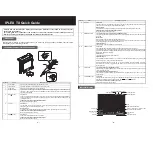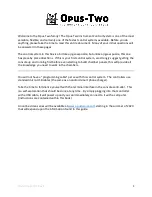
Calibration Guide, Board #100 & Higher, June 2000, GeoGauge #H-4140 (Stiffness/Modulus)
To re-calibrate, do as follows:
1. Turn off the GeoGauge.
2. Clean the ring foot and seal at the bottom of the GeoGauge of any soil. Clean out the hex hole
of the three set screws at the bottom of the ring foot. Clean the area around the circumference
of the screws thread area. A needle or sharp pointed nail is good for this.
3. Place a clean sheet of fine grit abrasive sheet on a flat steel surface and place the GeoGauge’s
ring foot on the abrasive. Using the handle, twist or turn the GeoGauge about 2-3 turns to
remove any protruding nicks or scratches on the ring foot surface.
4. Remove the three setscrews with a 5/32 hex key wrench. Again, clean the ring foot. Make sure
no soil particles are present in the internal threads of the ring foot.
WARNING: Do not remove or loosen the center hex head screw securing
the ring foot to sensors. Damage can occur and will void warranty.
5. Place the calibration platen assembly on a sturdy table with strong legs. Place the calibration
platen above or as close as possible above a leg to avoid the weak area of the table. If in doubt,
use the floor, preferably concrete floor.
6. Clean off any dust or soil particles from the platen. Platen must be clean. Positive contact
between the ring foot and platen is important for accurate calibrations.
7. Place the GeoGauge on the center of the platen over the shoulder, lining up the screw holes.
8. Screw in the three screws (5/6-18 x 1-1/4 long) with its flat washers from below the round
platen. Insert part way in before inserting the others. Then hand-tighten all three evenly.
9. Using the torque wrench (supplied), tighten to 120 inch pounds (14.1 Nm). Tighten each
incrementally and evenly.
10. Remove the top display panel via four captive Phillips head screws at the metal corners.
11. Ascertained that the board # is 100 or higher. A number is written on a corner of the board.
12. As a pre-caution, remove any static or electrical charge you may have on yourself by touching
an earth grounded source such as a un-painted screw at an electrical outlet cover or light switch
cover or even the metal chassis at the rear of a plugged-in computer CPU.
13. Carefully lift the display panel straight up and away from the GeoGauge body.
14. Turn display panel sideways exposing the two toggle switches. The switch number 1 is the
reset switch. The switch number 2 is for calibration.
15. Continue to hold the panel in such a way the electronic circuit board is not touching anything
when you flip or move a toggle switch.
16. Flip the reset toggle switch number 1 to “ON”.





















